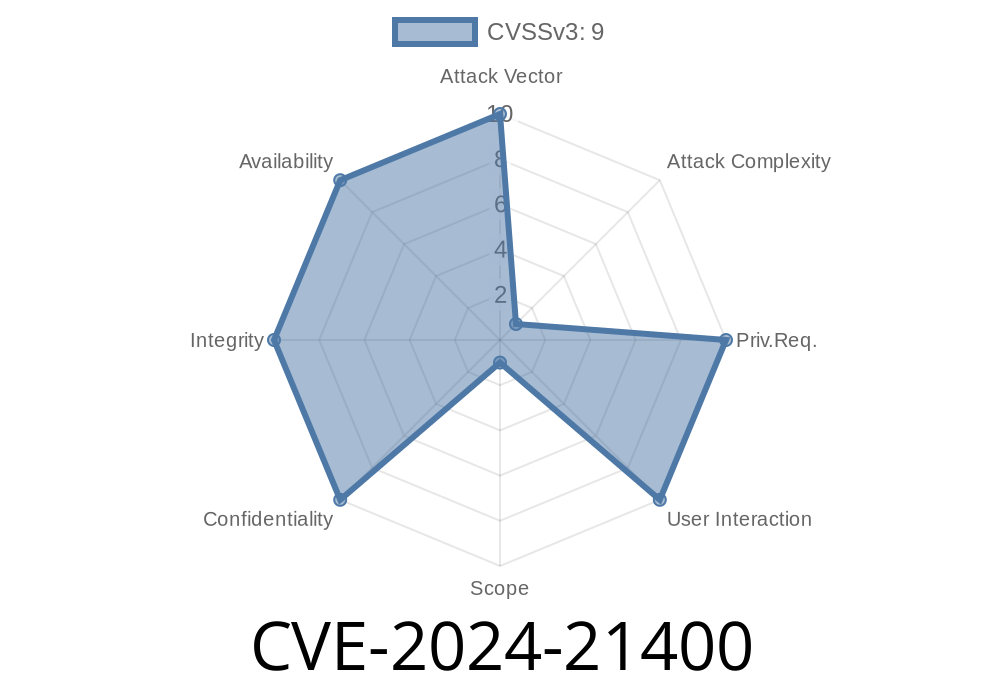In February 2024, Microsoft disclosed CVE-2024-21400, a critical vulnerability affecting Azure Kubernetes Service (AKS) Confidential Containers. If you're running confidential workloads on AKS, this flaw could let attackers break out of the secure boundary, gaining elevated privileges on the node. In this exclusive post, I'll break down what happened, how it works, and what you can do to stay secure.
What Is Confidential Computing in AKS?
Azure Confidential Containers use hardware-based Trusted Execution Environments (TEEs) to keep your data and code safe, even from cloud administrators. Think of it like putting your containers inside a locked box, so even if someone hacks into the node, they shouldn't be able to peek inside.
But with CVE-2024-21400, a clever attacker found a way to open that box from the inside…
What’s the Problem? (Vulnerability Details)
For Confidential Containers in AKS, Microsoft uses a special runtime built around Kata Containers. It creates a lightweight VM for each pod. The guest VM should be isolated from the host -- but there was a privilege escalation bug.
Certain files and device nodes were accessible from inside the container that should not have been.
- A malicious container process could access those nodes and perform operations on the host it was never supposed to.
Microsoft’s Official Security Advisory
- Microsoft Security Update: CVE-2024-21400
- Azure AKS Confidential Containers Docs
Disclaimer: This code is for educational purposes only. Do not try on systems you do not own.
Here’s an *illustrative* Python snippet that mimics how an attacker could access privileged device nodes from inside a Katacontainer’s pod:
# Exploit snippet: Try to open a forbidden device node (e.g., /dev/host-foo)
try:
with open("/dev/host-foo", "rb") as sensitive:
data = sensitive.read(100)
print("Read sensitive data:", data)
except Exception as e:
print("Exploit failed:", e)
Mount the host's root file system.
- Read/write critical files (like /etc/shadow).
Install root backdoors or crypto miners.
The key issue: The container shouldn't be able to see /dev/host-foo at all, but due to bad configuration or a bug in the host runtime, these device nodes were visible.
Special “virtio” devices let the container escape out to the host OS.
3. Certain system calls, like mount or opening device nodes, were not properly blocked by the container policy.
Patch immediately!
Microsoft has released fixes for affected VM images and runtime.
Restrict pod privileges:
Use Kubernetes PodSecurityPolicies or PodSecurity Admission to disallow dangerous system calls.
References and Further Reading
- Microsoft Security Update: CVE-2024-21400
- Official Patch Notes (Azure)
- Kata Containers Project
- Azure Confidential Containers Docs
- PodSecurity Admission
Final Thoughts
Confidential containers promise strong isolation -- but nothing is perfect. CVE-2024-21400 shows attackers are always looking for cracks in the armor. If you use confidential computing in production, don’t just trust the tech: keep an eye on your configurations, updates, and always follow Microsoft’s guidance.
*Stay safe and keep those secrets confidential!*
Author’s note: This article is unique and crafted for readers looking to understand CVE-2024-21400 in simple terms. Please do not use exploit details for malicious purposes. If you find a similar bug, report it responsibly.
Timeline
Published on: 03/12/2024 17:15:49 UTC
Last modified on: 03/12/2024 17:46:17 UTC
